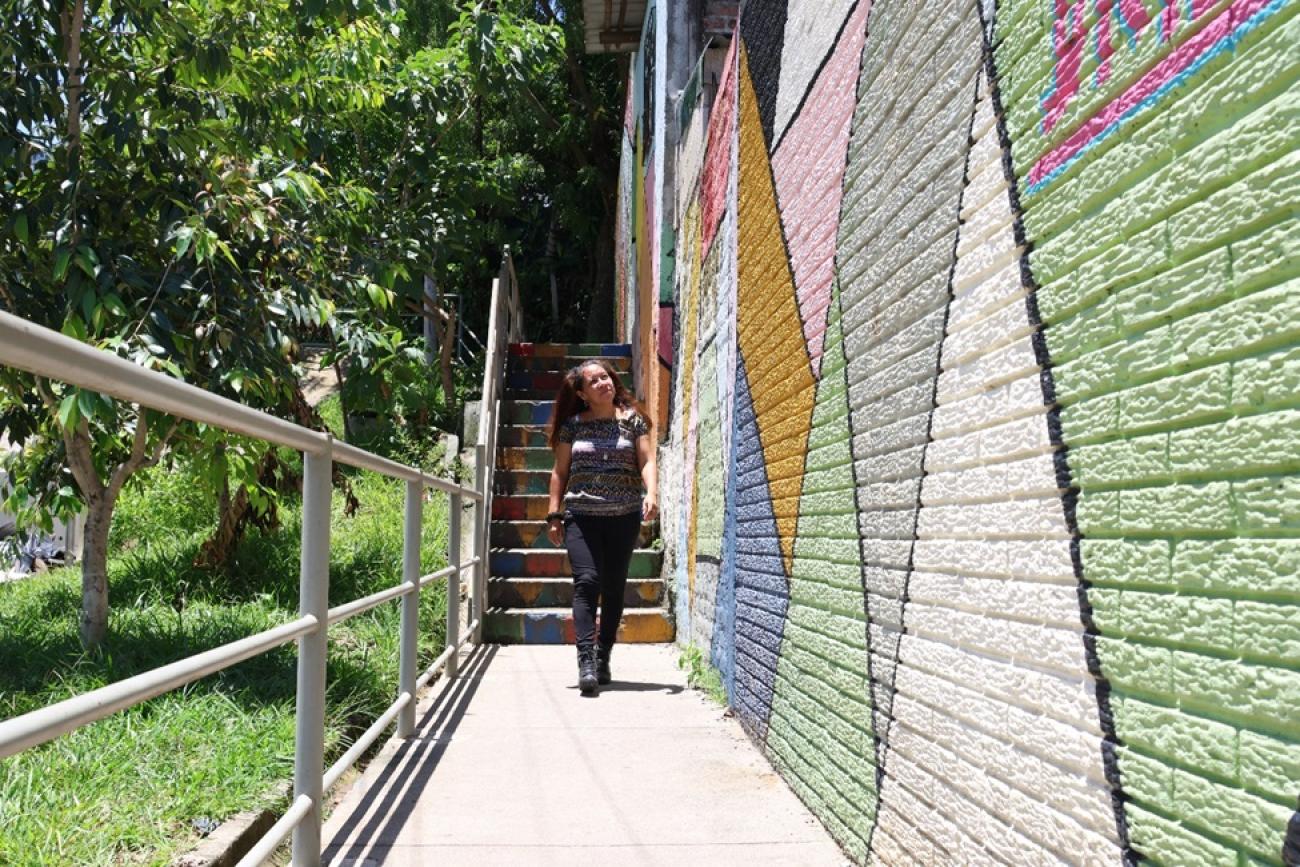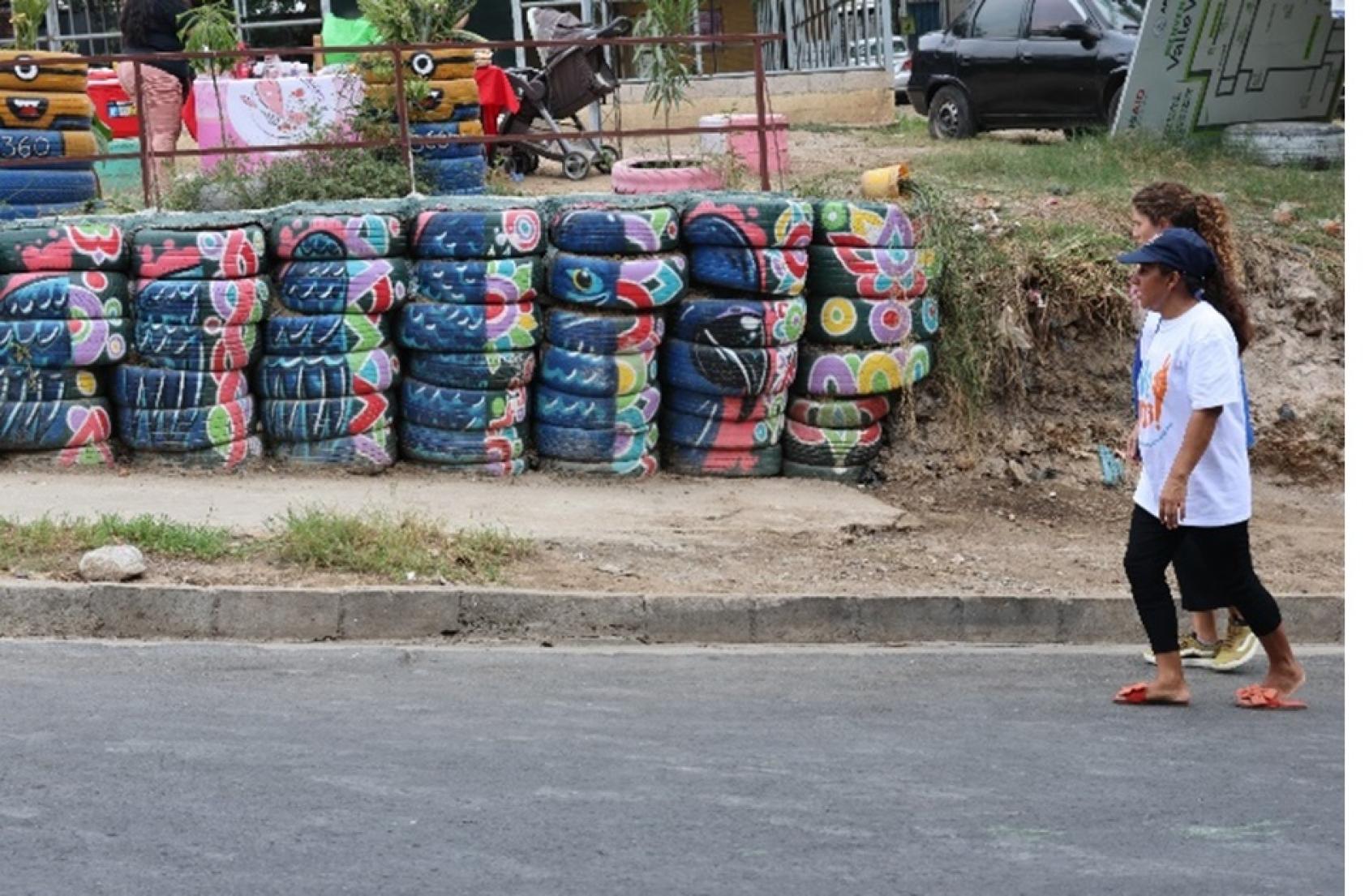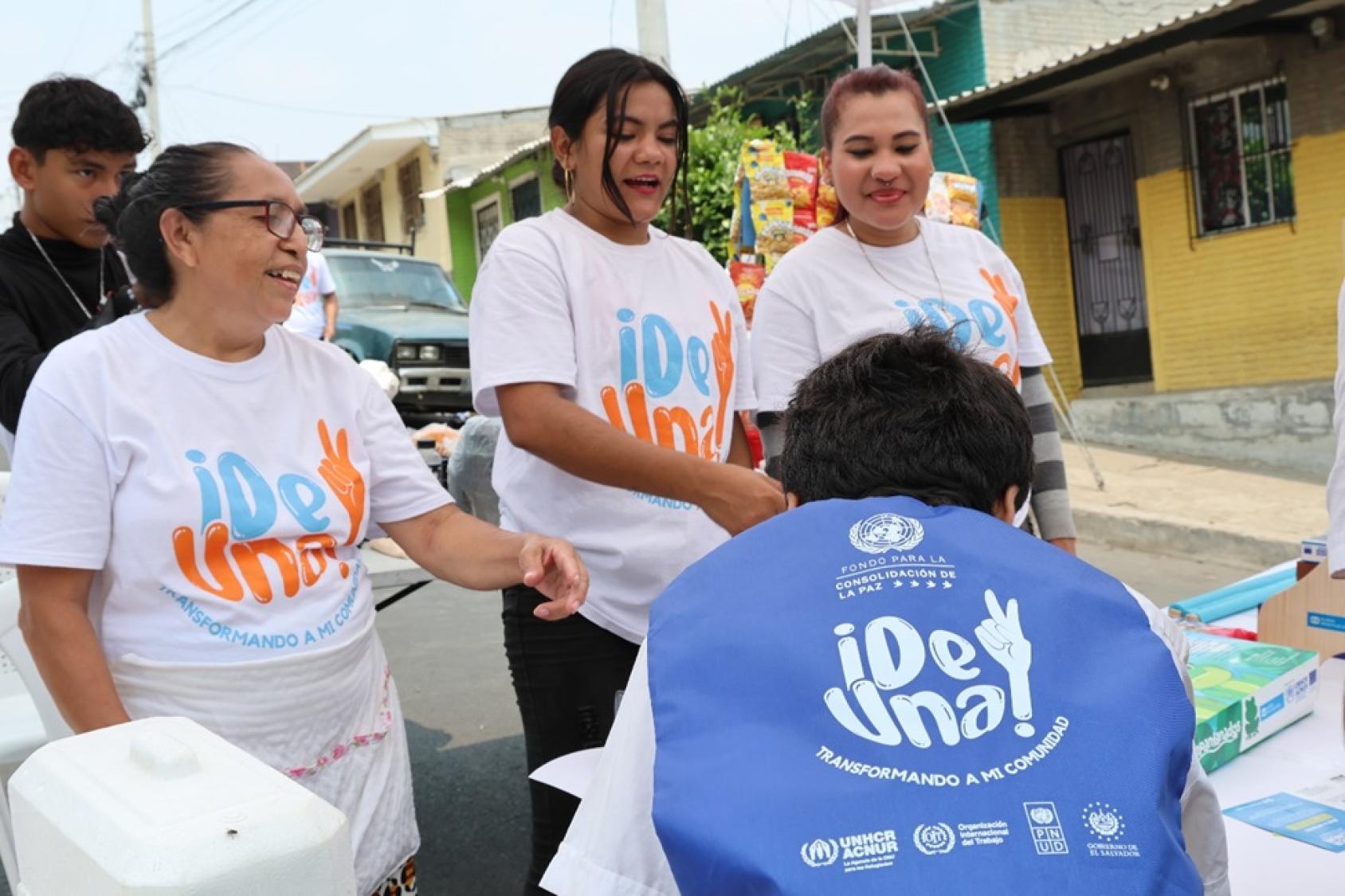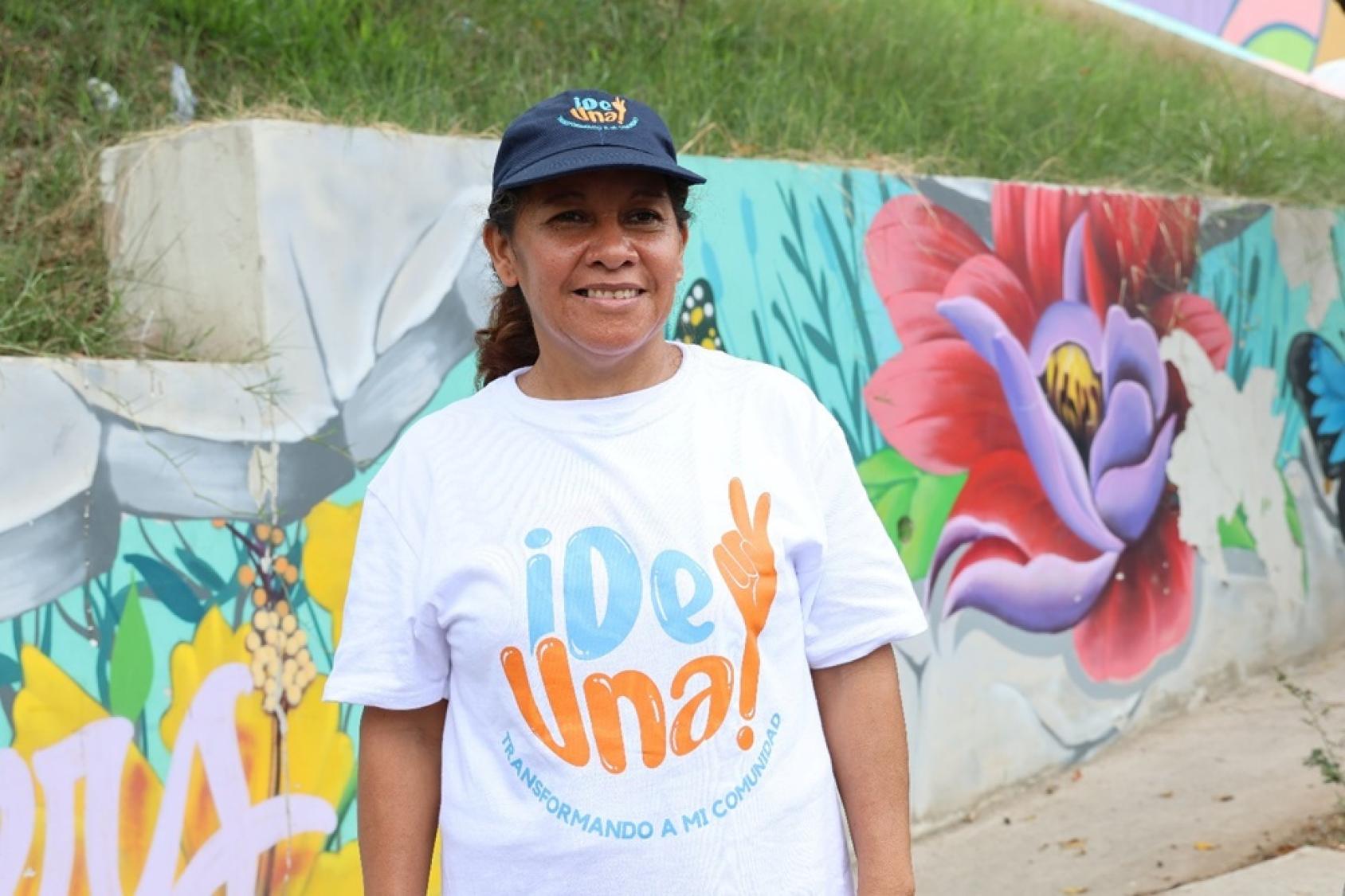Breaking Barriers, Building Peace: the Women of El Salvador

In the heart of El Salvador, the community of Valle Verde, Apopa, was plagued by gang violence and stigma for decades. Invisible borders enforced by gangs created a pervasive atmosphere of fear, severely limiting residents' freedom and opportunities. Young women, in particular, were trapped in a cycle of violence, their access to education, employment, and healthcare drastically curtailed.
"No one wanted to leave their homes or participate in activities," recalls Yanci, a young woman from Valle Verde. "The risk of violence was especially high for women, particularly young women. This constant threat created a sense of isolation throughout the community."
This situation persisted despite the significant progress achieved through the Government of El Salvador's security policy, which has led to a notable reduction in homicides, extortion, robberies, and other crimes. After the hardships endured by these communities, it became essential to rebuild trust, create opportunities to reconnect, and revitalize shared spaces, fostering a renewed sense of hope and unity.
To address these deep-seated issues, the UN in El Salvador partnered with the Government to launch the "De Una! Transforming My Community" programme, funded by the UN Peacebuilding Fund. Recognizing that sustainable peace requires the active involvement of everyone, "De Una!" empowered residents to take ownership of peacebuilding in their communities. Its objectives were to address the root causes of conflict, foster social cohesion, and create economic opportunities.

Yanci and her neighbors formed the "Neighbours in Action" committee and began implementing "De Una!"'s vision in their community. Neighbours came together for community clean-up days, reclaiming neglected spaces and transforming them into sources of collective pride. They launched environmental campaigns, fostering a sense of shared responsibility for their surroundings. They created safe spaces for children and youth, organizing workshops that encouraged learning, dialogue, and healing, in order to foster the next generation of Valle Verde residents. And because economic stability is so crucial to social cohesion, they also organized skills workshops that would provide residents with opportunities to build sustainable livelihoods, empowering them to break free from the cycle of poverty that can often contribute to conflict.
"De Una!" provided crucial support by facilitating collaboration between the community, government, businesses, and NGOs. This collaborative approach created opportunities, prevented violence, and helped families stay in their communities.
The Resident Coordinator's Office (RCO) played an active role in "De Una!", participating in its design and implementation, and leading the project's Executive Committee alongside the Ministry of Foreign Affairs. This committee, comprised of government institutions and UN agencies (the UN Refugee Agency (UNHCR), the International Labour Organization (ILO), and the United Nations Development Programme (UNDP)), not only guides the project but also ensures that its successes can be replicated in other communities facing similar challenges.
Women leading the way
"At first, only a few people participated due to fear," Yanci explains. "But we have gone through a process that has allowed us to overcome those fears. Now we are very excited because neighbors from other areas have joined in. That was impossible before.”

Yanci's participation in "De Una!" leadership workshops inspired her to encourage other women to take on leadership roles. Yessi, another young woman from Valle Verde, shares her experience: “At first, I wasn’t sure about participating. But Yanci encouraged me and told me that this space would help me grow. Thanks to these workshops, I’ve gained skills I never thought I would have. Now I feel like I can contribute much more to my community and help other women discover their own potential.”
The positive changes in Valle Verde are a testament to the power of investing in women and youth as agents of peace.
The Resident Coordinator in El Salvador, Raúl Salazar, emphasizes this point: "As the young people and women of Salvadoran communities previously affected by the violence demonstrated, they are powerful drivers of change. By providing them with opportunities to participate meaningfully in peacebuilding processes, they found solutions, fostered resilience and created a more comprehensive understanding of the needs for lasting peace and citizen security in their communities.”
Since 2023, "De Una!" has expanded to support young people in ten communities across El Salvador. Through partnerships with various UN agencies, the government, the private sector, NGOs, and communities, "De Una!" continues to foster opportunities for youth, prevent violence, and build a lasting legacy of peace in El Salvador.
The UN Country Team (UNCT) in El Salvador has also operationalized other initiatives focused on empowering youth and women, such as "Jóvenes por La Libertad," which promotes youth engagement in tourism, and "Guardianas de la Paz," which creates conditions for women to influence ongoing peacebuilding processes.

A legacy of peace
"De Una!" serves as an example of the critical importance of involving young people and women in peacebuilding processes. As outlined in the Women, Peace, and Security (WPS) and Youth, Peace, and Security (YPS) agendas, women and young people are not merely beneficiaries but essential agents of change, possessing unique perspectives and capabilities to contribute to conflict prevention, resolution, and sustainable peace.
Recognizing the vital role of women and young people in building lasting peace, the UN in El Salvador, led by the Resident Coordinator, has championed policies promoting their meaningful inclusion in peacebuilding. This includes initiatives like the "Second Meeting of Women Peacebuilders," which brought together regional UN entities such as UN Women, the Department of Peacebuilding and Political Affairs (DPPA) and the UNDP-DPPA Joint Programme to design a plan of action for Latin America and the Caribbean on women's involvement in peacebuilding. The Resident Coordinator Office also led local discussions with governmental and civil society organizations, emphasizing the positive role young people play and advocating for their inclusion in all peacebuilding efforts.
The transformation in Valle Verde demonstrates the power of peacebuilding led by women and young people. By addressing the root causes of conflict and fostering social cohesion, "De Una!" has sparked positive change locally and inspired action regionally, proving that empowering women and youth is crucial for building a more inclusive and peaceful future.
Read more about the work of the Resident Coordinator’s Office in El Salvador. For more information on the UN in El Salvador visit the UN Country Team Website at elsalvador.un.org.













